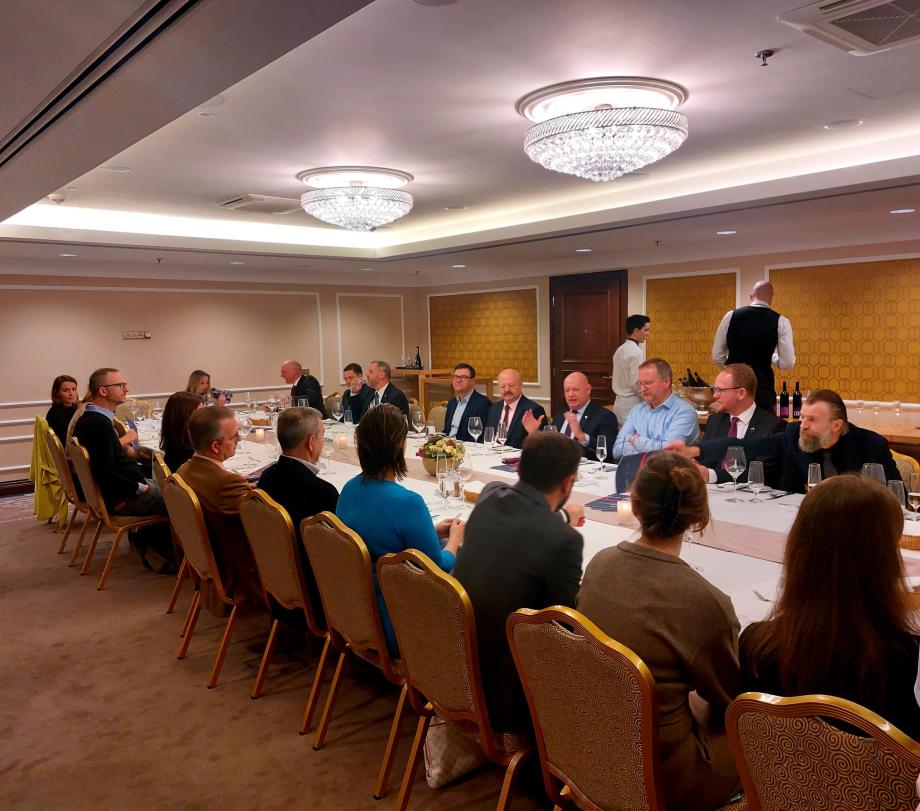Future Security & Defence Council: Briefings in Prague and Bratislava

GLOBSEC's Future of Security team finalised the series of briefings on the final report "Adaptive Portfolio: Catalysing NATO's Performance Through Innovation" of the Future Security & Defence Council (FSDC) project. The last two events took place in Prague and Bratislava in close succession, connecting stakeholders from governments, ministries, parliaments, industry, think tanks, and media.
The report focuses on defence innovation within the Alliance and its future potential to keep NATO relevant. FSDC members Krasimira Stoyanova and Admiral Manfred Nielson and the lead author Heiko Borchert briefed the guests on the outcomes of the report. A new member of the Council, General Pavel Macko, then introduced the key takeaways of the upcoming GLOBSEC report on the Lessons learned from Ukraine.
Read the key takeaways below:
- The way we think about innovation has to change. Successful innovation requires much more than only technological advancement. It has to align organisational, conceptual, and technological change. Moreover, there cannot be innovation for the sake of innovation without a conceptual outlook on what it should deliver to the Alliance. Risk-taking and interoperability are what matters. The war in Ukraine showed how civilian, economic, and technological capabilities have to connect together to become innovative and resilient.
- Geoeconomic competition is the next challenge ahead of the Alliance. The economic element is the Achilles' heel of NATO right now. Most members forgot this while there was an economic hegemon embodied in the United States. Now, the hegemon has retreated from this role and geoeconomics come to the fore again. It unveils how economic integration is lagging behind. Access to raw materials and new technologies are potential geoeconomic challenges for the future of NATO.
- The private sector must also be involved in the innovation processes. We need to complement the discussion about defence interoperability with a discussion on industrial interoperability. To close the innovation and the capability gaps, the industrial base of the Alliance should be aligned. Efficiency on the battlefield makes the results. Closing of the gaps within the Alliance should therefore be addressed from the base.
- We need a constant institutionalized dialogue between state and private sector. NATO has to be more forward with coaching and counselling to member states when adopting new technologies. The challenge is to make all innovation avenues synchronized to match one line of effort and to avoid fragmentation.
- Deterrence should be linked to new tech and innovation. The war in Ukraine shows how innovative approach can be adopted on the battlefield, since the Ukrainian troops are often using AI, digitalisation, and learning to use various Western equipment in mere days. This should help accelerate a change in the innovation processes at the NATO level. It shows that legal processes and administrative constraints are often slowing down the innovative potential, while some countries outside of the Alliance are not limited by them. Innovation has to be driven to the frontline.
- The upcoming GLOBSEC report on Lessons Learned from Ukraine complements the debate by introducing practical recommendations on what NATO´s next steps should be to learn from the war in its immediate neighbourhood. Based on interviews with Ukrainian commanders and soldiers it shines light on how innovative approach can be adopted on the battlefield by including information warfare and the control of narratives, rapid conversion to war logistics and decentralized structures, usage of drones, and the use and continuous development of AI and data driven battle.